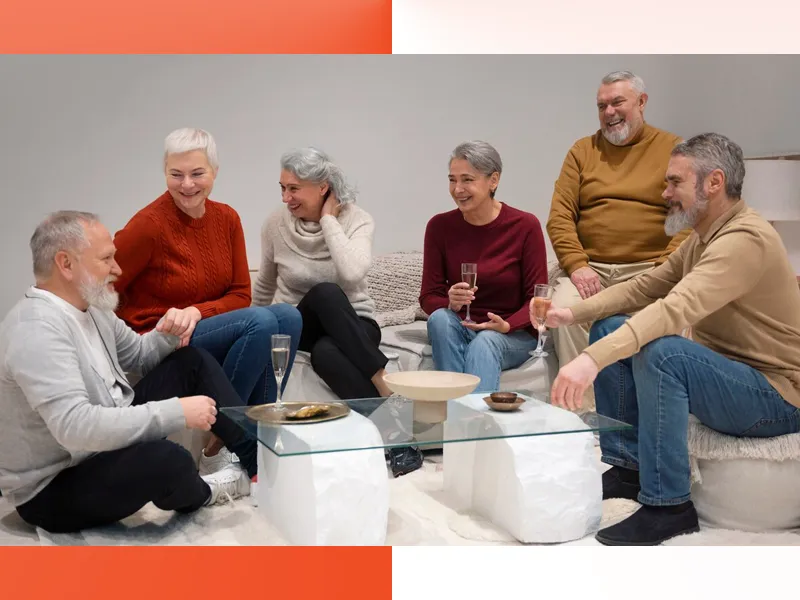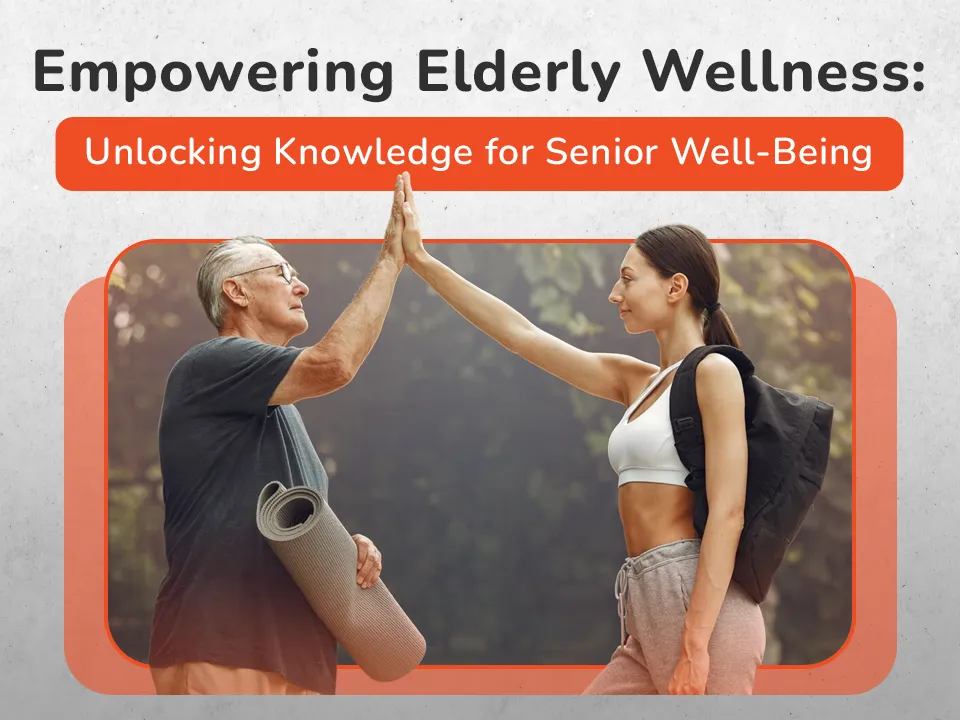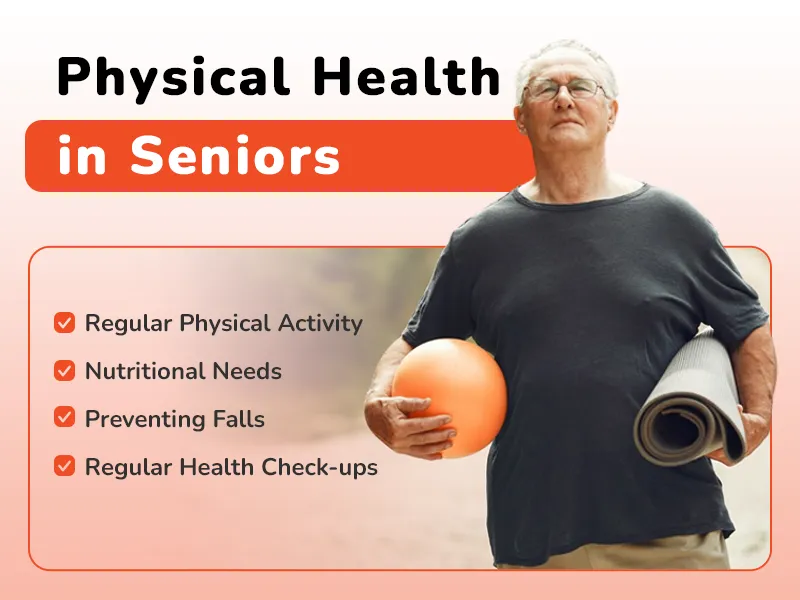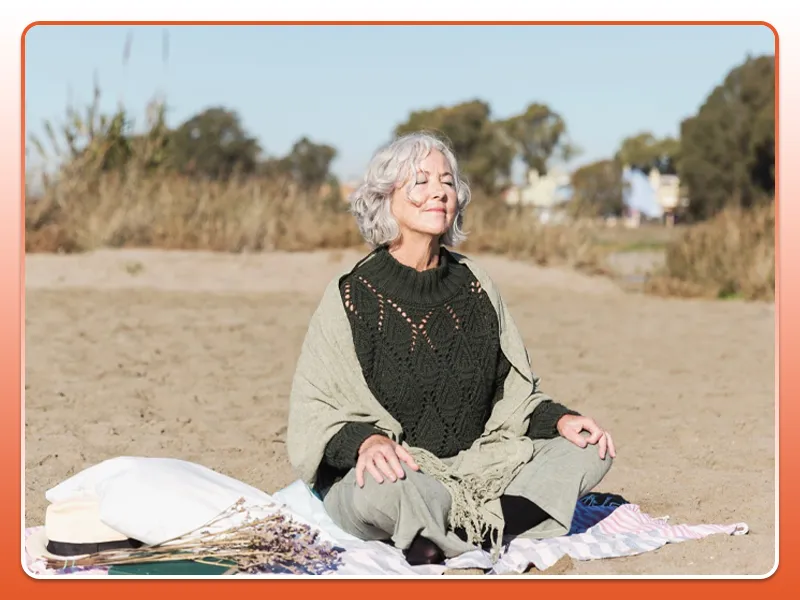Vital Resources for Aging Well: Nurturing Senior Wellness through Education
Aging well involves more than just physical health; it also encompasses mental wellness and social engagement. Access to the right resources is key to navigating this multifaceted journey for seniors. This blog highlights essential resources and strategies to support senior wellness, underlining the crucial role of education in achieving a fulfilling and healthy aging process. Through practical advice and insightful tips, we aim to empower seniors with the knowledge needed to maintain their health, stay active, and remain connected within their communities, ultimately enhancing their quality of life during their golden years.
Understanding Senior Wellness
Senior wellness transcends the simple absence of illness, embodying a holistic approach to maintaining a vibrant quality of life through physical fitness, mental alertness, and emotional well-being. It acknowledges that achieving optimal health in later years involves more than just managing medical conditions; it requires a comprehensive strategy that encourages active engagement, lifelong learning, and emotional resilience. Education plays a pivotal role in this wellness journey, equipping seniors with the knowledge and tools necessary to navigate the intricacies of aging. By embracing educational opportunities, seniors can better understand how to sustain their physical health, keep their minds sharp through mental stimulation, and nurture their emotional health by staying connected with their communities. This balanced approach to wellness empowers older adults to lead fulfilling lives rich with personal growth and meaningful connections.
Physical Activity: A Cornerstone of Healthy Aging

Physical activity is a fundamental pillar of healthy aging, and its significance is magnified for the senior population. Engaging in regular exercise not only bolsters physical health by improving mobility and strengthening bones but also plays a critical role in maintaining cardiovascular wellness. This trifecta of benefits underscores the importance of staying active as we age, contributing to a higher quality of life and greater independence.
To support seniors in incorporating physical activity into their daily routines, a variety of resources are available:
- Local Community Centers: Many community centers recognize the unique fitness needs of seniors and offer exercise classes specifically designed for them. These classes provide a safe environment for physical activity and cater to different fitness levels, ensuring that everyone can participate regardless of their starting point.
- Online Tutorials and Apps: The digital age has made it easier for seniors to find suitable exercise routines. Numerous online platforms offer tutorials and apps dedicated to senior fitness, ranging from low-impact workouts to more strenuous exercises, all of which can be done from the comfort of home. This accessibility is invaluable for those who may face barriers to attending in-person classes.
- Walking Clubs and Groups: Walking is a fantastic form of exercise that requires no special equipment and can be adapted to fit an individual’s fitness level. Many communities have walking clubs or groups specifically for seniors, providing excellent physical activity and social interaction opportunities. These groups often explore different routes, making each walk a physical and social adventure.
Nutrition: Fueling the Body for Longevity
Proper nutrition plays a critical role in aging, acting as the fuel that powers all dimensions of senior wellness. A balanced diet supports overall health and is instrumental in managing and potentially mitigating chronic conditions that often come with age. Recognizing the importance of nutrition is one thing; accessing reliable information and practical advice to implement it is another. Fortunately, there are several key resources available to seniors seeking to optimize their nutritional intake:
- Dietitian Consultations: Personalized advice from a registered dietitian can be invaluable for seniors looking to adapt their diet to their specific health conditions and nutritional needs. These professionals can provide tailored eating plans considering medical conditions, dietary restrictions, and personal preferences, ensuring that seniors receive balanced nutrition supporting their health goals.
- Nutrition Workshops: Many community centers, hospitals, and wellness organizations offer workshops specifically designed to address the nutritional needs of older adults. These sessions provide insights into how dietary needs change with age, meal planning and preparation strategies, and tips for making nutritious choices that can enhance health and well-being.
- Websites and Publications: The internet is a rich source of nutritional information, with numerous websites dedicated to senior health offering recipes, dietary tips, and advice on managing health conditions through diet. Additionally, newsletters and magazines targeting seniors often include sections on nutrition, providing easy access to new recipes and the latest research on diet and aging.
Mental Health: Keeping the Mind Sharp
Maintaining mental health is equally crucial as physical health for seniors, with a strong emphasis on stimulating cognitive functions and nurturing emotional well-being. Much like muscles in the body, the brain benefits from regular “exercise” through mental stimulation and social interaction, which can significantly contribute to preserving cognitive abilities and fostering a sense of fulfillment and happiness.
To support mental health and cognitive activity, several resources are readily available:
- Brain Game Apps and Puzzles: Engaging in activities challenging the mind is proven to enhance cognitive function. Brain game apps and puzzles, such as crosswords, Sudoku, and memory games, are specifically designed to stimulate different brain parts, promoting mental agility and potentially delaying the onset of cognitive decline. These accessible tools can be tailored to individual preferences, offering a fun and effective way to keep the mind sharp.
- Book Clubs and Educational Courses: Lifelong learning and social engagement are vital for mental health. Book clubs and educational courses provide opportunities for cognitive stimulation and social interaction, which is essential for emotional well-being. Participating in discussions, learning new subjects, or even acquiring new skills can invigorate the mind and help build and maintain social connections, contributing to a more active and engaged lifestyle.
- Support Groups and Counseling Services: Navigating the challenges of aging can sometimes be overwhelming, making mental health support services an invaluable resource. Support groups offer a space for sharing experiences and coping strategies, reducing feelings of isolation. Counselling services provide professional support to address mental health issues such as depression, anxiety, or grief, offering guidance and therapeutic interventions to enhance emotional well-being.
Preventive Healthcare: The Key to Longevity
Preventive healthcare is a fundamental pillar in the pursuit of longevity, especially for seniors. Individuals can significantly influence their health outcomes by prioritizing early detection and management of health issues. Engaging in regular health screenings and staying informed about preventive care strategies are critical steps in this process.
Key resources that support preventive healthcare for seniors include:
- Regular Check-ups and Screenings: Routine medical examinations are essential for monitoring health status and catching potential issues before they become serious. Screenings such as blood pressure checks, cholesterol levels, diabetes screening, and cancer screenings (such as mammograms and colonoscopies) are recommended at various intervals for seniors. These check-ups can help in early detection of diseases, allowing for timely intervention and treatment.
- Educational Seminars: Many healthcare providers, community centers, and senior organizations offer seminars and workshops focused on health issues prevalent among older adults. These sessions cover many topics, including heart health, diabetes management, osteoporosis prevention, and more. By participating in these educational opportunities, seniors can gain valuable knowledge on mitigating the risk of common health issues and maintaining a healthier lifestyle.
- Vaccination Clinics: Vaccinations are crucial in preventing infections that can harm seniors. Clinics often focus on administering vaccines relevant to older adults, such as the flu, pneumonia, shingles, and COVID-19 vaccines. Staying up-to-date with vaccinations effectively reduces the risk of contracting diseases that can lead to severe health complications later in life.
Social Engagement: Building Connections

Social engagement is critical in promoting emotional health among seniors, serving as a powerful antidote to loneliness and isolation. By fostering connections and nurturing a sense of belonging within a community, social activities contribute significantly to overall well-being and happiness in later life.
Key resources that encourage social interaction and engagement for seniors include:
- Senior Centers: These community hubs are invaluable for seniors looking to stay socially active. Offering a wide array of social events, educational classes, and group outings, senior centers provide numerous opportunities for making new friends, learning new skills, and simply enjoying leisure activities. From art classes and book clubs to dance lessons and group excursions, these centers are designed to cater to diverse interests, ensuring that every senior can find something engaging.
- Volunteer Opportunities: Volunteering allows older adults to give back to their communities while staying socially active. Many organizations seek out seniors for their experience, wisdom, and reliability, offering volunteer roles that are tailored to older adults. Whether mentoring the younger generation, assisting in local charities, or participating in community beautification projects, volunteer work can provide a strong sense of purpose and fulfillment.
- Online Forums and Social Networks: In today’s digital age, the internet offers another avenue for social connection. Online forums and social networks specifically for seniors can help those who may be homebound or living in remote areas to connect with others who share similar interests. Whether through discussion groups, shared hobby sites, or virtual book clubs, these online platforms can bridge distances and bring people together, fostering a virtual community of support and friendship.
Lifelong Learning: Never Too Old to Learn
The adage “never too old to learn” holds particularly true regarding the enriching journey of lifelong learning for seniors. Engaging in continued education stimulates the mind and broadens horizons, allowing seniors to acquire new skills, delve into hobbies, and expand their knowledge base. This pursuit of learning can significantly enhance the quality of life, providing a sense of accomplishment and joy in discovery at any age.
There are a wealth of resources available to support seniors in their educational endeavors:
- Community College Programs for Seniors: Many community colleges offer programs specifically designed for seniors, providing courses that cater to their interests and learning pace. From art and history to technology and health, these programs are tailored to encourage seniors to explore new subjects in a supportive and stimulating environment.
- Online Courses and Webinars: The digital age has made access to education more accessible than ever before. Online platforms offer various courses and webinars on virtually any subject imaginable. Seniors can learn languages, understand the basics of computer programming, or explore the universe’s wonders from the comfort of their homes. This flexibility allows for personalized learning experiences that can fit into any schedule.
- Local Libraries Hosting Workshops and Talks: Libraries are not just for books; they are community centers that offer a variety of learning opportunities. Many libraries host workshops, talks, and seminars on various topics, including health and wellness, local history, and practical skills like gardening or cooking. These events provide valuable information and offer a chance for social interaction and community engagement.
Read More: Staying Active in Your Golden Years: Fitness and Mobility for Seniors
Navigating Technology: Staying Connected in the Digital Age
In today’s rapidly evolving digital landscape, staying connected and tech-savvy is crucial for seniors. As technology infiltrates every aspect of daily life, from communication to health management, it’s imperative that older adults feel confident and competent in navigating the digital world. Fortunately, numerous resources are dedicated to helping seniors bridge the digital divide, ensuring they can take full advantage of technology’s benefits.
- Tech Training Sessions for Seniors: Recognizing the unique challenges seniors may face when learning new technology, many community centers, libraries, and senior organizations offer tech training sessions. These sessions are designed specifically for older adults and cover basics, from using a smartphone or tablet to understanding online safety. Trainers are accustomed to addressing common concerns and can provide the patient with step-by-step guidance that seniors may need.
- Guides and Tutorials: The internet is a treasure trove of information, including countless guides and tutorials tailored to tech newcomers. Websites and YouTube channels often publish content aimed at seniors, offering clear instructions on using various digital devices, navigating social media platforms, and utilizing apps that can enhance daily living, such as grocery delivery services, telehealth appointments, or video calling for staying in touch with family and friends.
- Technology Assistance Programs: Several organizations recognize the importance of technology in maintaining independence and social connections in later life. These programs provide ongoing support and assistance to older adults, helping them troubleshoot issues, learn new skills, and stay up-to-date with the latest digital tools. Some programs even offer device donation or lending services to ensure seniors have access to the necessary technology.
Conclusion
For seniors, aging well means staying informed, active, and connected. Older adults can enjoy a richer, fuller life by leveraging educational resources across physical health, nutrition, mental wellness, and social engagement. Remember, it’s never too late to embrace the journey of aging well, armed with knowledge and supported by a community that cares. With the right resources and a commitment to education, seniors can confidently navigate aging, maintaining their health, independence, and joy for life.




